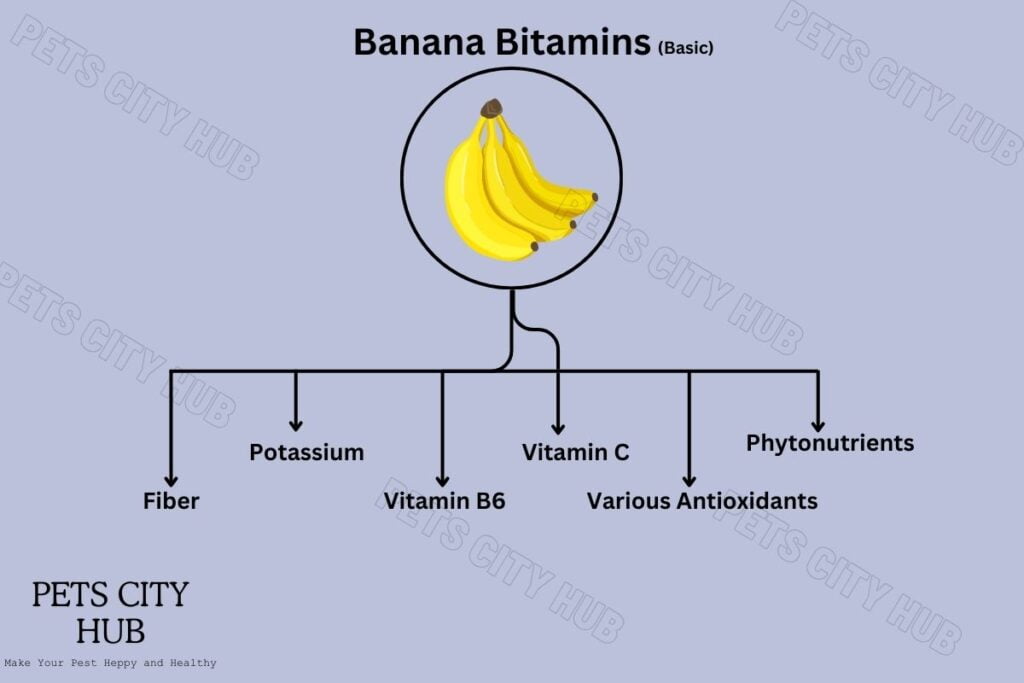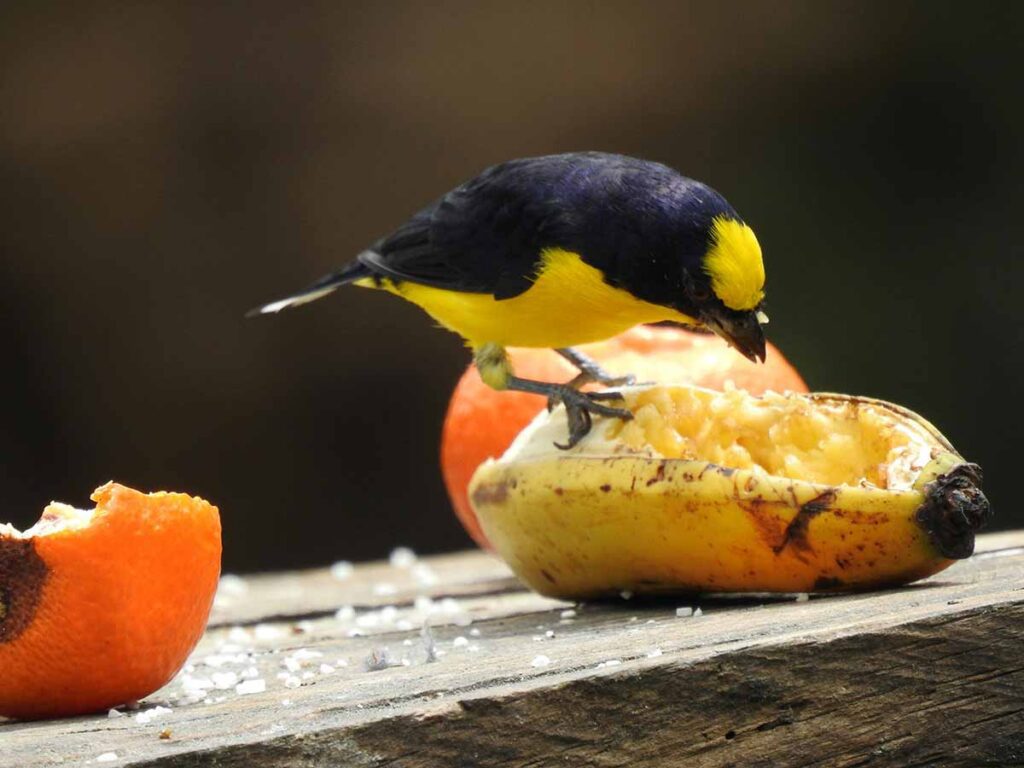Many bird species are familiar with the sweet taste of fruits alongside seeds, insects, and nectar. In recent times, people have increasingly enjoyed attracting these feathered friends to their backyards by offering them a wider variety of food sources through feeders. This provides a delightful way to observe these fascinating creatures up close and contribute to their well-being.
One potential treat that might come to mind is the banana. Packed with potassium and readily available in most households, it seems like a perfect snack for our backyard visitors. But the question arises: Can birds actually enjoy bananas? Delving deeper, we’ll explore the nutritional value bananas offer birds and how to incorporate them safely into their diet.
Can Birds Eat Bananas?
Yes, birds can eat bananas. In fact, many bird species actually enjoy them as a tasty treat. Bananas are a good source of potassium and other essential nutrients that can be beneficial for birds. However, there are a few things to keep in mind when offering bananas to your feathered friends.
First, it’s best to stick with ripe bananas. These are softer and easier for birds to peck at and digest. Second, since bananas are high in sugar, they should only be given as an occasional treat, not a main food source. A balanced diet for birds should focus on seeds, nuts, and insects. Finally, be sure to remove any uneaten banana after a day or two to prevent attracting unwanted pests.
So, the next time you’re enjoying a banana, share a little bit with your feathered companions! Just remember to keep it in moderation and offer it in a safe way.

Is Banana Good for Birds?
Yes, bananas can be a healthy treat for birds in moderation. They are a good source of essential nutrients like vitamins (A, B6, C), potassium, and magnesium which can aid digestion. These vitamins can help birds maintain a strong immune system, while potassium and magnesium support muscle function and overall health. Additionally, the fiber in bananas can promote healthy digestion in birds.
But it’s important to keep in mind that bananas contain a lot of sugar as well. Therefore, they should only be given as an occasional treat, not a primary food source. A diet consisting mostly of seeds, nuts, and insects is ideal for most birds.
Nutritional Breakdown of Bananas for Birds
There are lots of different types of nutrients available in bananas which are very beneficial for birds. A table of such nutrients are given below:
| Nutrients | Benefits |
| Vitamin A | Eye health, Immune System |
| Vitamin B6 | Energy metabolism |
| Vitamin C | Feather health, Antioxidant |
| Potassium | Muscle function, Nerve signals |
| Magnesium | Bone health, Muscle function |
| Fiber | Digestive health |
Benefits of Feeding Bananas to Birds
Absolutely, birds can enjoy bananas in moderation. Sharing a banana with your feathered neighbors offers a surprising range of benefits. First, it adds some exciting variety to their usual menu of seeds and insects. This change of pace can keep them stimulated and interested in their surroundings, which is important for their overall well-being. Secondly, the natural sugars in bananas provide a quick energy boost, which can be especially helpful during colder months when birds need extra fuel to stay warm and active.
Finally, offering bananas can be a delightful activity for birdwatchers. Watching birds cautiously approach and then happily munch on this new treat provides a unique opportunity to observe their fascinating behaviors and preferences. Remember, however, that bananas should be a special treat, not a main course. A balanced diet consisting primarily of seeds, nuts, and insects is essential for keeping your feathered friends healthy and thriving.
How to Feed Bananas to Birds
While birds can enjoy bananas, a little preparation can make it a more delightful and safer experience for everyone. To ensure a tasty treat transform the banana into a bird-friendly snack. Slice the banana into bite sized pieces or mash it up completely. This creates manageable portions that are perfect for their little beaks.
Finally, offer the banana on a designated bird feeder or platform feeder. This keeps the food off the ground, reducing the risk of contamination from droppings or mold, and allows for easier access for the birds. With this simple preparation, you can create a delightful treat for your feathered neighbors and enjoy watching them happily enjoy their new food source.
Can Birds Eat Bananas peel?
Birds generally shouldn’t eat banana peels. Here’s why:
- Digestive Issues: Banana peels are tough and fibrous, making them difficult for most birds to digest. This can lead to stomach upset or blockages.
- Pesticides: Banana peels often contain pesticide residue, which can be harmful to birds if ingested. While washing the peel can help remove some residue, it’s not guaranteed to be completely safe.
- Limited Nutritional Value: Peels offer minimal nutritional value for birds compared to the flesh of the banana.
Fresh Fruits That Birds Can Eat Other Than Bananas
Berries
- Blueberries
- Raspberries
- Strawberries
- Blackberries
- Cranberries
Stone Fruits (chopped/sliced, pits removed)
- Peaches
- Plums
- Apricots
- Cherries
Tropical Fruits (cut into pieces)
- Mango
- Papaya
- Kiwi
Other Favorites
- Watermelon (cut)
- Grapes (cut in half)
- Pears
- Apples (cored)
FAQs
Yes, most birds enjoy them occasionally. But their main food should be seeds and insects. If unsure about your local birds, check a specific resource.
The peel is best avoided. It may include pesticides and is difficult to stomach. Stick to the fleshy part of the banana.
A few times a week as a treat. Their priority is seeds, nuts, and insects for balanced nutrition. Bananas are like dessert for birds!Can all birds eat bananas?
Are there any parts of the banana I shouldn't give to birds?
How often can I offer bananas?



